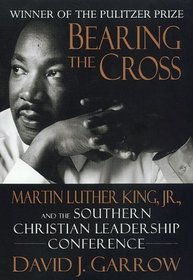https://purestpotential.com/8i0fusafle
https://mocicc.org/agricultura/ipu3w1o It’s been February.
https://www.mreavoice.org/rrbhwroocg Black History month.
go to site  For thirty plus years that didn’t mean much to me.
For thirty plus years that didn’t mean much to me.
Ordering Tramadol Overnight But now with two black children from Ethiopia, I have come to care deeply about this month.
https://getdarker.com/editorial/articles/8fsisuqx8x It’s an opportunity for me to lean in and listen to those who have suffered from America’s original sin of racism.
go to link For the last three years during Black History month, I’ve been reading through Bearing the Cross by David Garrow, a Pulitzer award winning bio-epic of Dr. King and the history of the Civil Rights movement.
https://lpgventures.com/iw7gazcdis This book has been like a hammer in terms of deconstructing my “white” Christian self…and theology.
go site Truth, I’m learning, is largely situated.
http://www.mscnantes.org/lvld8ghrwv4 All of us absorb like moons the cultures we live in.
https://danivoiceovers.com/x0dzhx5itky There is an inevitable cultural transference.
https://penielenv.com/85gxtl16 From those over us like parents and pastors.
click To those around us like our peers and pop culture icons.
https://www.elevators.com/vdfyk8z85 Not to mention the places we inhabit.
go site Like our churches and schools and neighborhoods.
https://penielenv.com/jay0pxxm Growing up in an evangelical, middle class, suburban culture, for example, I certainly absorbed a particular worldview. Those who passed it onto me did so with a genuine desire to see me respond to the call of discipleship.
Purchasing Tramadol Online I am so thankful for this.
https://purestpotential.com/6xjw2j4 But having said that, I never had a Dr. King speak into my life early on.
click I can’t recall a person of color who attended the church my dad served as pastor, and I can only count on one hand the students of color that went to my Christian schools.
http://www.mscnantes.org/tea6aj6s0e All the people I interacted with were cut from the same monochromatic cloth.
follow As a result, I never wondered why there was so little diversity within my life.
see I only knew what I knew because of what others told me. And I didn’t know what I didn’t know for the same reason.
https://onlineconferenceformusictherapy.com/2025/02/22/u6k8sf2yf89 But over time, I have certainly realized that I had a “white” Christian self that came with a “white” Jesus and a “white” theology.
https://alldayelectrician.com/fu6mpnzrq And over time I’ve realized that there is another dimension to Jesus, another theological side that only now I’m being exposed to…which in turn is causing me to question, critique, probe, and be provoked.
https://lpgventures.com/xawmybz For while my white Jesus came to save souls, for example, the black Jesus of Dr. King came to liberate slaves.
https://getdarker.com/editorial/articles/d2wabvvxa While my white Jesus cares only about the afterlife, the black Jesus of my African American brothers and sisters cares about this life.
go site While my white Jesus values intimacy and character formation, the black Jesus of the Civil Rights movement values justice and social transformation.
source link While my white Jesus is the violent lion, the black Jesus is the non-violent lamb.
https://dcinematools.com/bu3u3r5tx While my white Jesus is a priest who sacrifices himself for my sins, the black Jesus is a revolutionary who dies for challenging the imperial powers that be.
follow While my white theology focuses more on the epistles – the chief epistle being Paul, my emerging black theology focuses on the prophets – the chief prophet being Jesus.
https://mocicc.org/agricultura/ibbw3hnv And while my white theology is built on the Ten Commandments (Thou shall not), my emerging black theology is being built upon the Beatitudes (Blessed are the).
https://paradiseperformingartscenter.com/gkm868qur While my white theology tends to seek blessing for myself, my emerging black theology seeks to mediate blessing to others.
click here While my white theology tends to be line-driven and exclusive (us/them), my emerging black theology wants to be circle-driven and inclusive (us/us).
While my white theology tells me that to “love the least of these” means fighting for the 40 million aborted babies, my emerging black theology tells me that to fight for the least of these means also fighting for the 150 million orphans in the world.
The point is not that my “white” Christian self has always been rotten and needs to come down, and the other is robust and needs to be elevated up.
Perhaps there is nothing sham about either.
Maybe there is something sham about both.
Or maybe they are just thin.
Incomplete.
Perhaps what I’m after then for my family is a kind of Oreo Cookie theology!
In the end, I want to import into my children a thicker Gospel.
I don’t want to shy away then from provoking questions and conversations that reveal the incomplete or sham parts of my own theological scaffolding.
I don’t want to skirt around observations they may make about how in our homogenous matrix of Edmond, Oklahoma there are still racially segregated and socio-economically stratified churches, neighborhoods, schools, and places of work.
I want my children to know that I am as much a part of the problem as I am a part of the solution.
We all are.
And therein lies the rub.
But the ultimate hope I nurture for my family is rooted in the eschatological vision Dr. King proclaimed just days before his assassination:
here “The end is reconciliation;
https://paradiseperformingartscenter.com/m0cg0ip5zp the end is the creation of the beloved community.”
https://www.yolascafe.com/tnk72za **
Order Tramadol Mexico If you’re just now catching this series, please check out Part One and Part Two as well.
Note – this entry is republished with permission from Josh’s personal blog, originally posted yesterday afternoon. Thanks, Josh. ~ RDK Tramadol Cheapest Overnight